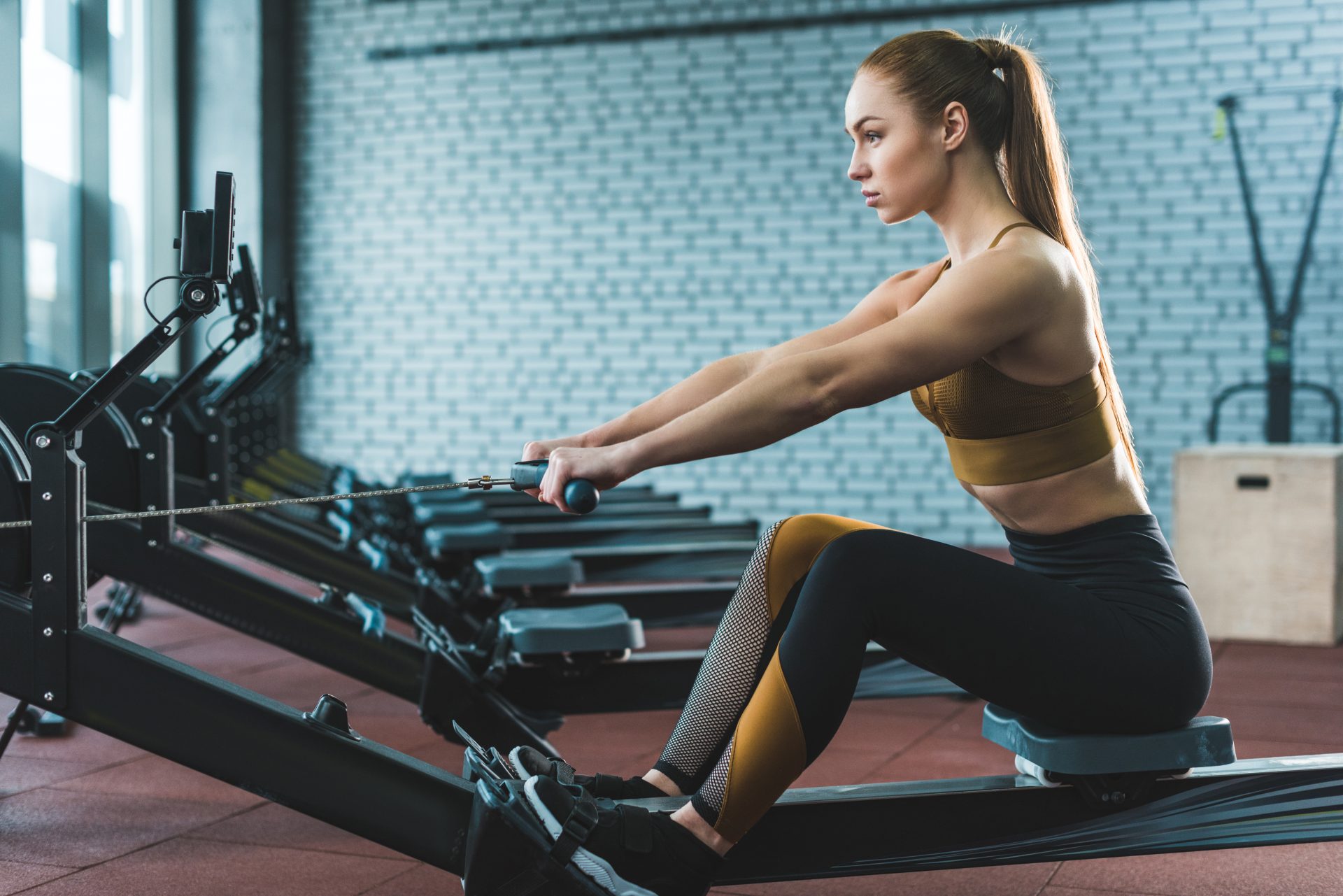How to use a rowing machine for a full-body cardio workout

Nail your form on the rowing machine for the ultimate full-body workout.
After months of lockdown, people are finally allowed back to the gym (with a few Covid-friendly caveats, of course). That means you can now strength train with heavy weights, jump into a swimming pool and mix up your cardio routine.
Yep, while running may have seen you through lockdown, there is more to getting your heart rate up than simply pounding the pavement. Take for instance, the rowing machine. This may not be the most missed piece of kit over lockdown, but the rowing machine can be used for an excellent full-body workout that uses muscles in your upper body, lower body and core, as well as improving all around fitness.
However, getting form right is imperative if you want to reap all the benefits a rowing machine can offer.
You may also like
Can weight training be a form of cardio? Fitness trainers explain how to get your heart rate up during strength training
The benefits of rowing
Héloïse Nangle, fitness trainer and the COO of Core Collective, believe that rowing is one of the most beneficial forms of exercise you can do. “It develops a combination of strength and cardiovascular fitness that, when performed correctly, will get strength and fitness advances in record time”.
Rowing works nine major muscle groups: “quads, hamstrings, glutes, lats, core, shoulders, triceps, back and biceps”. While you may think that rowing is all about pulling the bar back, each stroke should actually be “60% lower body, 20% core, and 20% upper body”. In other words, the power should all come from the glutes and other lower body muscles. Get this right, and your whole body will experience the benefits.
Mastering your rowing technique
Whether you’re just starting out or you want to work on your technique, Héloïse says that it’s important to “take your time, master the basics, and then you can up the pace”.

1. Push, don’t pull
When rowing, it can be tempting to pull the handles as hard as you can, working your arms as much as – if not more than – your lower body. But, as Héloïse mentioned, your arms shouldn’t be taking over the movement.
“You need to learn to drive through your legs, fully harnessing that force and utilising your quads, hamstrings and glutes. Have your weight evenly distributed through your whole foot to really help you maximise the power in your legs,” adds Héloïse. Make sure you keep your arms straight for as long as you can while driving through your legs, and then let them follow.
2. Watch your posture
It’s important to sit upright on a rowing machine, because “when the back rounds excessively at the front of the stroke, it then tends to extend at the back of the stroke”. This is a problem because, as Héloïse explains, “your spine flexes under the load, and it does it every time you take a stroke”. Not only is this not great for your back, but it also means you are unlikely to get the best times and speed you can during your workout.
You may also like
Posture exercises: 5 upper body stretches to support your back and shoulders
To ensure you maintain good posture, sit tall on the rowing machine and keep your back in this position throughout. This will require good core engagement. You should also make sure you “do not overreach at the start of the stroke, and always maintain a light grip with thumbs under the handles”, according to Héloïse.
3. Utilise your hips
Good hip action is crucial to successful indoor rowing technique, because it helps to create more power. Héloïse says that, “if you want to get the most out of your hips, you need to close them (with good posture) and then as you’re pushing the rower away, you need to aggressively swing your hips open as you’re driving through the legs”. She likens this to the technique you would use for a kettlebell swing.
Héloïse recommends really slowing it down while you work on this part of your technique, so that you can “work on creating energy at a lower stroke rate”, with a “big drive and slower return”. Once you have this down, “the legs and hips then work together to create a strong, connected, accelerating push off the machine, giving you that force you are after”.
Follow @StrongWomenUK on Instagram for the latest workouts, delicious recipes and motivation from your favourite fitness experts.
Images: Getty
Source: Read Full Article